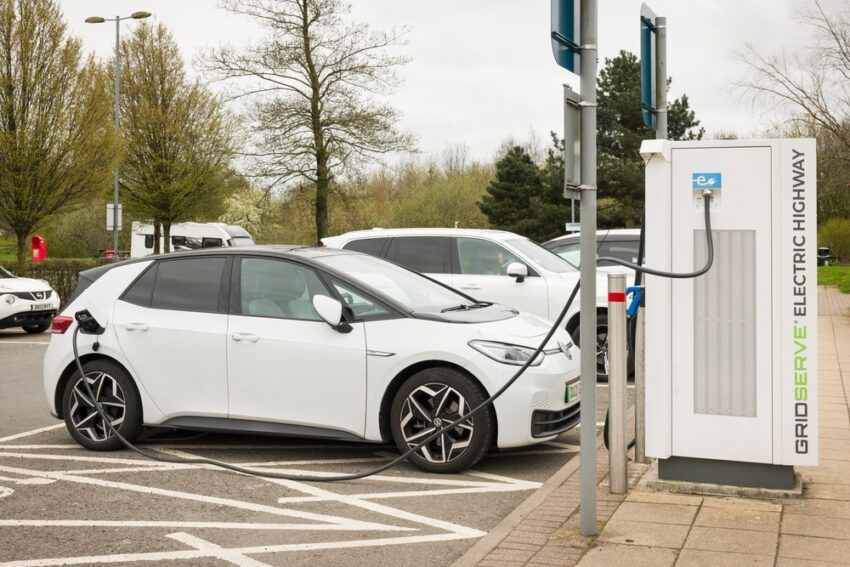
AI’s Influence on Electric Vehicles: Driving the Future of Mobility
The electric vehicle (EV) industry is accelerating into a new era, and artificial intelligence (AI) is firmly in the driver’s seat.
In 2025, AI is transforming how EVs are designed, manufactured, and operated, pushing the boundaries of efficiency, safety, and user experience. As the UK sees a surge in EV adoption—over 1.2 million electric cars were registered by March 2025, per the SMMT—AI’s role is becoming undeniable. For those curious about innovative platforms, a quick detour to a non gamstop casino reveals how tech adapts across industries. Similarly, tools like a non gamstop casino showcase streamlined systems, much like AI does for EVs. Here’s how AI is shaping the electric vehicle landscape today, grounded in the latest advancements.
Optimizing Battery Performance
Batteries are the heart of EVs, and AI is making them beat stronger. Battery management systems (BMS) now rely on AI to monitor real-time data—temperature, charge levels, and usage patterns. Companies like Tesla and CATL have integrated machine learning into BMS, enabling precise predictions of battery health and lifespan. A 2024 study from the University of Cambridge found that AI-driven BMS can extend battery range by up to 10% through adaptive energy management. This means EVs like the Nissan Leaf, already popular in the UK, could see ranges pushing past 300 miles on a single charge without hardware upgrades—just smarter software.
Advancing Autonomous Driving
Self-driving technology is no longer a sci-fi dream, and AI is the key to its reality in EVs. In 2025, firms like Waymo and UK-based Oxbotica are deploying AI algorithms that process data from cameras, LIDAR, and radar to navigate roads. Tesla’s Full Self-Driving (FSD) system, updated in late 2024, uses neural networks to handle complex urban scenarios—think London traffic or rural roundabouts. The UK government’s Automated Vehicles Act, passed in 2024, has paved the way for Level 3 autonomy on highways, where EVs can take over steering and braking. Data shows that autonomous EVs logged over 5 million test miles in the UK last year, a 40% jump from 2023.
Streamlining Manufacturing Processes
AI isn’t just on the road—it’s in the factories too. EV production lines at plants like Jaguar Land Rover’s Solihull facility are using AI to boost efficiency. Robots guided by computer vision systems assemble components with pinpoint accuracy, cutting waste and time. A report from the Advanced Propulsion Centre UK in January 2025 noted that AI reduced production defects in EV battery packs by 15% compared to 2023. This precision helps manufacturers meet surging demand—UK EV production hit 350,000 units in 2024, up 20% from the previous year—while keeping costs in check for models like the MG4 EV.
Enhancing Charging Infrastructure
Charging remains a hurdle for EV growth, but AI is smoothing the path. Smart charging stations, rolled out by companies like BP Pulse, use AI to balance grid demand and prioritise fast-charging slots. In 2025, over 50,000 public chargers dot the UK, and AI ensures they’re used efficiently. For instance, Pod Point’s network now predicts peak times using historical data, reducing wait times by 25%, according to a 2024 industry analysis. Home chargers are getting smarter too—AI algorithms adjust charging schedules based on electricity rates, saving users up to £200 annually, per Energy Saving Trust figures.
Improving Safety Systems
Safety is non-negotiable, and AI is elevating it in EVs. Advanced Driver Assistance Systems (ADAS) powered by AI—like those in the Volvo EX30—detect hazards faster than ever. In 2025, these systems process data from sensors to warn drivers of cyclists, pedestrians, or sudden lane changes. The European New Car Assessment Programme (Euro NCAP) reports that AI-enhanced ADAS cut collision rates by 30% in EVs tested last year. Real-time updates via over-the-air software mean safety features stay current, a standard feature in models from Rivian to Polestar hitting UK roads now.
Personalising the Driver Experience
AI is also making EVs more user-friendly. Voice assistants in cars like the BMW iX respond to natural speech, adjusting climate controls or navigation on command. Data from J.D. Power’s 2024 survey shows 68% of UK EV owners use AI-driven infotainment daily, up from 45% in 2022. Predictive maintenance is another perk—AI spots wear in brakes or tyres before it’s a problem, alerting drivers via apps. This tech, standard in Ford’s Mustang Mach-E, has reduced roadside breakdowns by 12% in 2024, per AA statistics.
Tackling Challenges
AI’s integration isn’t flawless. High computational demands strain EV batteries, and data privacy concerns linger as cars collect driver habits. A 2025 report from the Information Commissioner’s Office flagged risks in AI’s use of location data, prompting stricter guidelines. Still, the industry is adapting—edge computing, where AI processes data onboard, is cutting energy use by 20%, according to tech firm Nvidia’s latest findings.
The Road Ahead
AI’s influence on EVs is accelerating in 2025, from smarter batteries to safer roads. The UK’s push for net zero by 2050—supported by a ban on new petrol car sales by 2035—relies on these advances. With EV sales projected to hit 25% of the UK market this year, per Auto Trader, AI is ensuring electric mobility isn’t just sustainable but seamless. As the technology evolves, its role in EVs will only deepen, driving the industry toward a cleaner, smarter future.